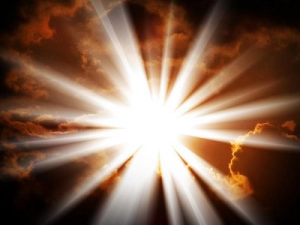 Valerie bought her first car yesterday: a 2008 Ford Escape with just 46,000 miles and one previous owner. Leather seats. Moon roof. Power everything. And clean. A far cry from the ’74 Monte Carlo I bought with roofing money when I was sixteen. This is a pretty sweet ride. Her mom and I matched the money she had saved and now Val’s cruising around campus and Canyon in her own set of wheels. Her “whip,” she calls it. I have no idea what that means.
Valerie bought her first car yesterday: a 2008 Ford Escape with just 46,000 miles and one previous owner. Leather seats. Moon roof. Power everything. And clean. A far cry from the ’74 Monte Carlo I bought with roofing money when I was sixteen. This is a pretty sweet ride. Her mom and I matched the money she had saved and now Val’s cruising around campus and Canyon in her own set of wheels. Her “whip,” she calls it. I have no idea what that means.
~~~~~~~~~~~~~~~~~~~~~~~~
 God gives us his covenant and he works through his covenant to reveal himself. He tells us who he is, he shows the world who he is, by his covenant actions with his people. In Exodus 34, God does not destroy his people after the golden calf incident, although he wants to. Moses talks him out of it. Instead, God reveals his glory to Moses. He tells Moses his full name, he discloses to his people exactly who he is:
God gives us his covenant and he works through his covenant to reveal himself. He tells us who he is, he shows the world who he is, by his covenant actions with his people. In Exodus 34, God does not destroy his people after the golden calf incident, although he wants to. Moses talks him out of it. Instead, God reveals his glory to Moses. He tells Moses his full name, he discloses to his people exactly who he is:
“The LORD, the LORD, the compassionate and gracious God, slow to anger, abounding in love and faithfulness, maintaining love to thousands, and forgiving wickedness, rebellion, and sin.” ~Exodus 34:6-7
It’s such an important revelation of God that it’s quoted nine times in the Old Testament. This is who God is. These are his eternal characteristics, his eternal nature. And you find these character traits on display as God keeps his covenant Word to his people. It’s a very helpful exercise in reading and interpreting the Bible, I think, to look for these characteristics in every passage. Is revealing his compassion here? Is God demonstrating his patience here? Is this where God shows me that he’s forgiving? It’s important to God that we know him; we should look for it in his Scriptures.
There’s a well known Assyrian prayer that’s titled “A Prayer to Every God.” And in this pagan prayer, the worshiper is trying to appease a god from his anger over some offense the worshiper has committed. There are only two problems: One, he doesn’t know which god is angry and, two, he doesn’t know what he did wrong. So he makes a bunch of confessions to sins he doesn’t know if he’s committed or not. And each confession is addressed to “the god I do know or the god I do not know.” Maybe he’s eaten a forbidden fruit he knows nothing about. Maybe he accidentally wandered into a sacred space nobody told him about. The prayer is so frustrating and hopeless. You can hear the desperation at the end:
“Although I am constantly looking for help, no one takes me by the hand;
when I weep, they do not come to my side.
I utter laments, but no one hears me;
I am troubled; I am overwhelmed; I cannot see…
Man is dumb; he knows nothing;
mankind, everyone that exists — what does he know?
Whether he is committing sin or doing good, he does not ever know.”
This is how we would be without revelation. That’s why the covenant is so important, that’s why God’s law was such a treasure to Israel: because God had spoken to them. In an act of divine grace, God communicates to his people what pleases him and what angers him. We don’t have to guess.
Today, we look back at some of the Old Testament laws and we criticize the strictness and we question the seeming arbitrariness of some of it. But you don’t get that reaction from the Hebrews themselves. They seemed rather relieved that their God had agreed to define a relationship with them.
The covenant is about revelation.
When God’s planning and raining down the ten plagues on Egypt, he states over and over again it’s so “you will know that I am the Lord” and so “all of Egypt will know that I am the Lord.” When the Israelites were getting close to Jericho, Rahab told the two spies they were all afraid because they had heard about what God did to Egypt. She claimed their hearts had all melted at the news “for the LORD your God is God in heaven above and on the earth below.” When the Israelites cross the Jordan River, the people are told that God divided the waters “so that all the peoples of the earth might know that the hand of the LORD is powerful and so that you might always fear the LORD your God.”
When you have a covenant with God, you no longer have a remote, unapproachable God. You have a God you can know. A God you can count on. It’s important to God that we know who he is. And he reveals himself in clear terms though his covenant actions in Act Three.
Peace,
Allan
Leave a Reply